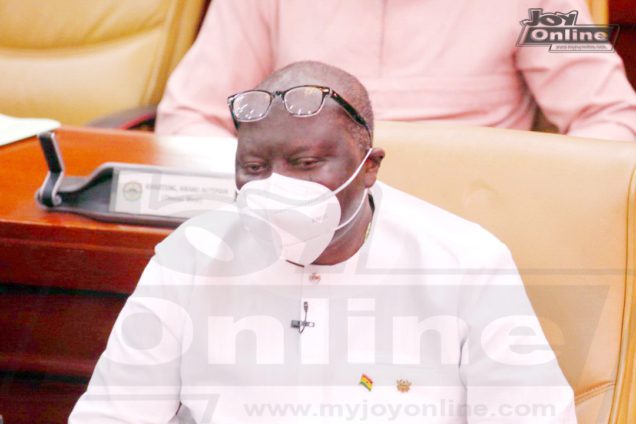Ghana’s economic health in the coming years will depend greatly on the ability of the government to implement further fiscal consolidation, with targets for 2022, including a primary surplus of 0.1% of Gross Domestic Product (GDP) and a fiscal deficit of 7.4% of GDP, the Oxford Business Group has revealed.
“Achieving the country’s fiscal goals will require discipline, but Ghana has repeatedly demonstrated its ability to navigate major economic and financial challenges. Its [Ghana] young population provides ample dynamism, and GDP growth is well positioned to accelerate in the short to medium term thanks to a raft of structural reforms”, it said.
The government is aiming for positive primary surpluses in 2022-25, with the fiscal deficit returning to the threshold outlined in the Fiscal Responsibility Act – suspended during the pandemic – of not more than 5% of GDP by 2024.
Additionally, it pointed out “the country’s experience capitalising on its variety of natural resources, coupled with its growing e-finance and commerce sectors, also stand it in good stead as the pandemic [COVID-19} continues into 2022.”
Despite ongoing uncertainty at the global level, the Oxford Business Group said “a budding confidence is present in Ghana that is starting to be reflected in domestic and international investment levels”.
However, it stressed the work to finalise the 2022 budget illustrates the challenges facing Ghana’s economy.
“With financing the public debt a rising concern – Fitch estimated that general government interest payments on debt would take up 47% of government revenue in 2022 – the leadership is under pressure to raise income, while also maintaining and even expanding programmes in welfare, infrastructure and job creation. And it must balance these priorities in a world that is not quite past the pandemic”.
The 2021 budget began a process of fiscal consolidation with increases in the National Health Insurance Levy and the Value-Added Tax rate of 1.0 percentage point each. Other levies were imposed on polluters, fuel and financial sector profits.
The 2022 budget therefore set out plans for further consolidation.
It introduced a 1.75% tax on electronic financial transactions to support infrastructure and transport projects. After much criticism, however, the rate was lowered to 1.5% in late January 2022 and remained under review by Parliament as of February 2022.
At the same time, certain discounts on import fees have been removed, motorway tolls abolished and tax-free thresholds hiked to encourage economic activity.
The projected expansion in the tax base due to the national identification card programme and other digitalisation initiatives, Oxford Business Group, said will – by government estimates – help secure a minimum of 3% of GDP in extra revenue.
Latest Stories
-
Paris 2024: Opening ceremony showcases grandiose celebration of French culture and diversity
3 hours -
Spectacular photos from the Paris 2024 opening ceremony
4 hours -
How decline of Indian vultures led to 500,000 human deaths
4 hours -
Paris 2024: Ghana rocks ‘fabulous fugu’ at olympics opening ceremony
5 hours -
Trust Hospital faces financial strain with rising debt levels – Auditor-General’s report
5 hours -
Electrochem lease: Allocate portions of land to Songor people – Resident demand
5 hours -
82 widows receive financial aid from Chayil Foundation
5 hours -
The silent struggles: Female journalists grapple with Ghana’s high cost of living
5 hours -
BoG yet to make any payment to Service Ghana Auto Group
6 hours -
‘Crushed Young’: The Multimedia Group, JL Properties surprise accident victim’s family with fully-furnished apartment
6 hours -
Asante Kotoko needs structure that would outlive any administration – Opoku Nti
7 hours -
JoyNews exposé on Customs officials demanding bribes airs on July 29
7 hours -
JoyNews Impact Maker Awardee ships first consignment of honey from Kwahu Afram Plains
8 hours -
Joint committee under fire over report on salt mining lease granted Electrochem
8 hours -
Life Lounge with Edem Knight-Tay: Don’t be beaten the third time
9 hours

